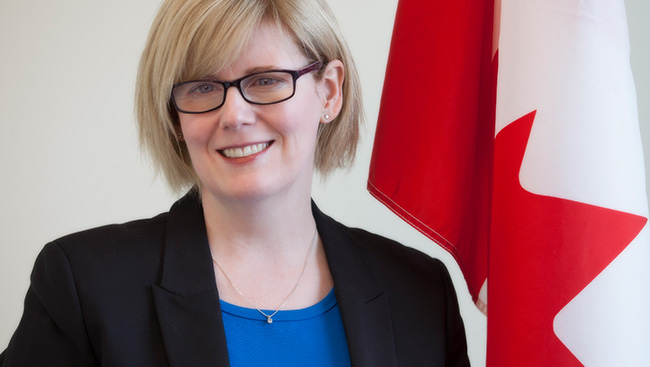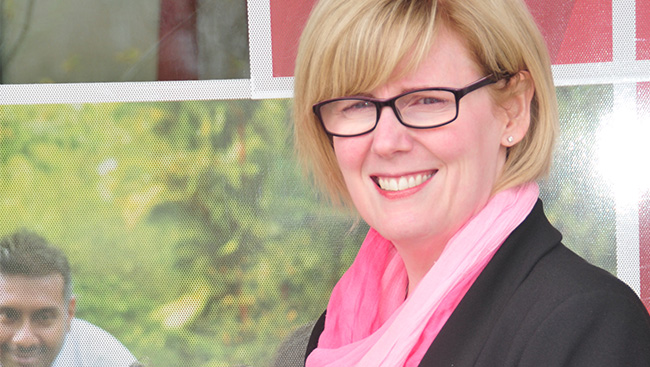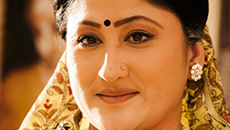A successful lawyer, dedicated volunteer, and Paralympic swimmer, Carla Qualtrough, Minister of Sport and Persons with Disabilities and Member of Parliament (MP) for Delta, has been strongly advocating for equality, diversity and inclusion through her two leadership roles. While efficiently managing both titles, Minister Qualtrough has brought about positive changes for person with disabilities and athletes, as well as the residents of Delta. In an exclusive interview with DARPAN Magazine, she talks about her work, her upcoming plans and what makes her a proud Canadian.
Excerpts from the interview
Having an impressive background in sports and law, what made you take the political path?
My background is as an athlete; I was on the national swim team. I competed at the Paralympics in Barcelona and Korea and at world championships. I travelled nationally and internationally and was exposed to various cultures and countries. It was through those experience that I became fascinated with how people with disabilities were treated around the world. It really sparked my interest in going to law school and becoming a human rights lawyer, and in particular working to advance the rights of peoples with disabilities.
After I retired from competition, I became an active volunteer in the Canadian sports system which led to a former sport minister offering me a job in Ottawa where I worked for six years and was exposed to the policy side of politics. That’s when I thought one day maybe I could do this. I ended up coming back to BC, where I practised human rights law. Then in January 2015, Liberal Party Leader Justin Trudeau asked if I was interested in running for MP in Delta. That’s how it happened. It feels like everything I had done in my life had led to this, whether it was studying French in school, the discipline I got through sports, my international travels or the exposure I got as political staff. Everything seems to have pointed me in this direction and has served me very well.

As the Minister of Sport and Persons with Disabilities, how has your background helped the role?
The Prime Minister tailor-made this portfolio for me, it’s the two things that I have dedicated my life to. A lot of lessons that I have learnt as an athlete on working hard, discipline and being part of a team have helped in shaping me as an adult and also as a politician. My job is very complex, I am the MP for Delta and I am also a cabinet minister – so it’s always about trying to balance [both]. How I try to do it is that I see Delta as reflecting our country, what the people of Delta tell me is very much, I think, representative of what Canadians want. We are a very diverse constituency – from the new immigrant population to the senior population to farmers and small businesses. We pretty much got it all here in Delta. If I listen to everyone, I am very well-equipped to go to Ottawa and make sure those perspectives are considered around the cabinet table.
What plans will you be introducing to help persons with disabilities integrate into society?
The Prime Minister has asked me to try and make sure Canadians with disabilities have the same opportunities as everybody else. The first way we are doing that is by creating new accessibility legislation, to help remove barriers that are faced by Canadians with disabilities in everyday life. We have a really strong human rights system in Canada but the challenge is that we have to wait until somebody is discriminated against before we help them. It’s very reactive. This new law will be proactive and will tell employers and service providers what expectations we have for them. And if people are not meeting these expectations, we can try and fix it. The law will be in tabled in the House of Commons in early 2018, but it will take a few years in order to implement this across the country.

In addition to the law, we are increasing our investments in accessibility; In Budget 2017 we announced an additional $77 million dollars to our Enabling Accessibility Fund which gives grants to local business and companies to make facilities and workplaces more accessible. We are also looking at our employment programmes and strategies. We know that Canadians with disabilities aren’t being hired or underemployed. Businesses find it easier to find somebody who doesn’t have a disability as it feels less complicated, and in some ways it might be, but it is so easy to accommodate people and remove that barrier, and it’s worth it because you will get a loyal competent employee.
Justin Trudeau’s government advocated strongly on bringing families together and welcoming more families to the country. What measures have been taken with regards to family reunification?
It is something that I am very proud of because it was such a big issue for people here in Delta, and North Delta in particular. There is more spousal entrance allowed. We have made it easier for siblings; we have increased the age back to 21. As part of our commitment to family reunification, our government continues to work towards reducing processing times for spouses. We’ve also doubled the number of parent and grandparent sponsorship applications accepted per year, from 5,000 to 10,000, as a complement to the Super Visa option. While the timeline has shrunk, we still have quite a bit of work to do in terms of how long it takes for families to be reunited. We are still at a point where there is a significant backlog and we need to address that. I’m being told that it’s being addressed and we are confident that this backlog will be reduce by the end of 2018. This is definitely a policy shift away from the focus on economic interests of the previous government and really focussing on building stronger families and stronger communities.

Canada being a multicultural country and Delta being a city comprising of various communities, as a MP how do you advocate and promote diversity and equality among residents?
It is something that you have to be very aware of and deliberate about. I do understand that the citizens in North Delta are a different demography than the citizens in Ladner and Tsawwassen. So it’s really about understanding where those three pockets of citizens are in terms of their needs, priorities, perspectives and at the same time understanding that there are some real common threads throughout Delta. Everyone wants a strong economy, everyone wants more jobs, and everyone wants to make sure that their seniors are taken care of in their retirements. These are things that matter globally and to all three pockets of citizens here. There is a lot more in common between the people of Delta.
Having held term for around two years, do share your experience as Delta’s MP. What are the concerns/complaints that you have heard from residents?
I have loved the MP part of my job; it’s incredibly rewarding. As a lawyer sometimes you have to wait to help people and wait until a judge decides if you win or lose. In this job, we can help people daily. When you get to the point when you are walking into your MP’s office, you are in a bit of a crisis – you have tried everything else and you are frustrated. And it is our job to help navigate you; I find it very rewarding. We get lots of emails on citizens having different opinions on different bills and laws and the different policy directions that we have chosen. We get a lot of immigration requests up here in the north of the riding; there are a lot of environmental concerns in Delta for issues like the bridge replacement and other developments. Every kind of tension you find in Canada, you can find in Delta.
One other thing that we face as MPs is issues that aren’t federal like the George Massey tunnel replacement which is a provincial project but we hear a lot about it. Canadians don’t experience their day to day life in terms of provincial or federal jurisdiction. What my team and I do is regardless of whose jurisdiction it is, we help them to get where they need to go, because it is an issue that affects Delta. The MP role is really fun and very immediate. Our job is to know as much about what the federal government has to offer and then offer it [to the residents] and bring the opinions of the people of Delta to Ottawa as we make those decisions. It is absolutely the best job that I have had in my life.

Canada completes 150 years in 2017, what is the one thing you are most proud of being Canadian?
I think the value of equality and inclusion in Canada is what really makes us unique as a country. I think we have proven through our history that countries can be built without war and conflict, celebrating the differences amongst us and understanding that it is actually those differences that can make us strong. We should be very proud that we all walk around understanding that we are equal, that we have equality and opportunity. It is important we celebrate that. We have made mistakes in the past, but we are looking at that and saying that we need to apologize and make it right, and move forward and do better. And we are doing that, that’s what I am proud of.
Photos: Office of Hon. Carla Qualtrough, PMO, newswire.ca/ParticipACTION 150, Silver Law Photography




